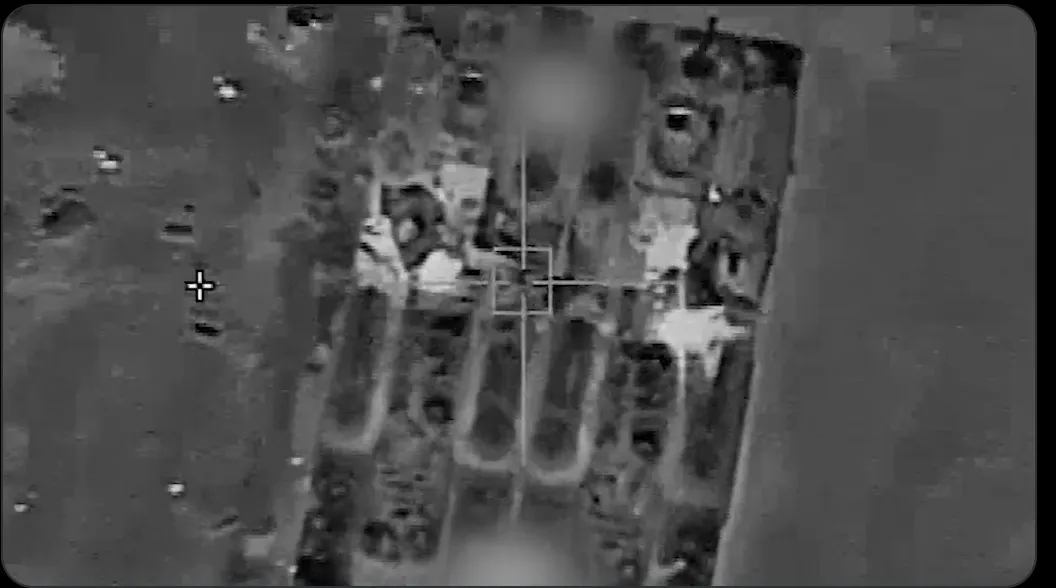The dramatic events of the previous days have shown that the world has still not escaped the dregs of British geopolitical thinking. As one prominent author recently quoted Winston Churchill from 1929: “The story of the human race is War. Except for brief and precarious interludes there has never been peace in the world; and before history began murderous strife was universal and unending.”
The fall of Syria’s government and the violent seizing of power by well-armed and -trained “reformed terrorists” was a surprise to the world, and a blow to universal justice. The moves now by Israel to exploit the vacuum in Syria are unprecedented, and indicate the direction in which some would like to take this crisis. While the details of how these events precipitated over the recent days remain murky, the intention behind them cannot be mistaken to the astute observer. Without a doubt, Winston Churchill is smiling up at them from his hellish grave.
Israel has now begun to seize Syrian territory, and Prime Minister Netanyahu gleefully claimed, “We are transforming the face of the Middle East.” Even further, Israel has launched hundreds of airstrikes into Syria, aimed at the destruction of much of that nation’s military and scientific infrastructure, including ports, airfields, and research facilities, effectively ensuring that Syria will never again be an advanced or sovereign nation. These blatantly illegal moves, along with the carte blanche approval by the United States, is thus coherent with the long-standing plans of the neocons who have seen this region as a sandbox for their global geopolitical games.
It’s useful to remember one of the great-grandfathers of the neoconservative movement, Bernard Lewis, who wrote in a Foreign Affairs article in 1992: “Most of the states of the Middle East are of recent and artificial construction and are vulnerable to such a process. If the central power is sufficiently weakened, there is no real civil society to hold the polity together, no real sense of common national identity or overriding allegiance to the nation-state. The state then disintegrates—as happened in Lebanon—into a chaos of squabbling, feuding, fighting sects, tribes, regions and parties.” In this way, nations become chess pieces for larger imperial motives.
Indeed, that has been the strategy of Western geopoliticians with regard to Syria for over a decade—despite lies to the contrary about the protection of “human rights” and “inclusive political processes.” After arming and supporting al-Qaeda and related groups in an attempt to topple Assad—an approach which weakened Syria but ultimately failed—the West and the U.S. in particular enacted brutal sanctions against that nation which were intended to bring it to its knees. Those not killed or displaced by the fighting were sure to be killed or displaced by the sanctions.
Since the Western-instigated war against Assad in 2011 and the implementation of EU and U.S. sanctions, Syria’s electricity generation fell by 63% and per-capita electricity consumption fell by 85%; clean water production fell by 40%; and the Syrian pound fell by 98%. Add to that the fact that 90% of the remaining population live below the poverty line, and 80% of them are food insecure, and it becomes clear that this, not Assad, was a major factor in Syria’s eventual fall.
But this development can only be understood if looked at from the vantage point of the overriding situation in the world. This latest “regime-change” action was not aimed at Bashar al-Assad’s Syria, or even Iran. Rather it is aimed at the threatening new paradigm of sovereign nations represented by the BRICS and their collaborators across the Global Majority—a paradigm which seeks to overturn the ghastly specter of the likes of Winston Churchill and Bernard Lewis, insisting instead that there are alternatives to war and geopolitics.
While that development is certainly a blow—and will undoubtedly be felt the most by the people of Syria, Lebanon, and Palestine—it cannot stop the transformative process underway globally that is irreversibly moving away from the dying Anglo-American system. Nonetheless, if understood, it gives an even more shudderingly terrifying insight, because the same suicidal madness which has been exhibited in the case of Syria is also at play against the much larger “rivals,” namely Russia and China, and will rapidly take the world into a global extinction event if not stopped. For this reason, all citizens globally must be laser-focused on stopping the escalation toward thermonuclear war. The Nov. 20 remarks by Rear Adm. Thomas Buchanan from STRATCOM underscore the readiness to do that.
In contrast, Helga Zepp-LaRouche laid out how a new system—a new security and development architecture—can lay the basis for a resolution of this dramatic crisis. During last weekend’s Schiller Institute conference, Zepp-LaRouche said in response to one of the participants:
“The only comprehensive approach to the strategic situation has actually been formulated by President Xi Jinping, who has formulated this conception of the shared community of the one humanity. And that actually fulfills the requirement I had mentioned earlier, that you have to think about the one humanity of being of a higher order than the many—the many being the nations. And the three initiatives of Xi Jinping—the Global Security, Development, and Civilizational Initiatives—together actually represent in my view the kind of framework which equals what happened in the Peace of Westphalia, where the warring parties came to the conclusion that they had to end the war by first coming up with principles; the principles being that any peace order has to be in the interest of the other—all others—or else there will be no peace….
“I think one needs to put the three initiatives on the strategic agenda. Because unless you address the existential danger to all of humanity, which is the nuclear extinction, I do not think you can solve all the regional problems; because the whole conflict is driven by this geopolitical fight between the collapsing empire of the West and the rising China and the Global South on the other side.”







